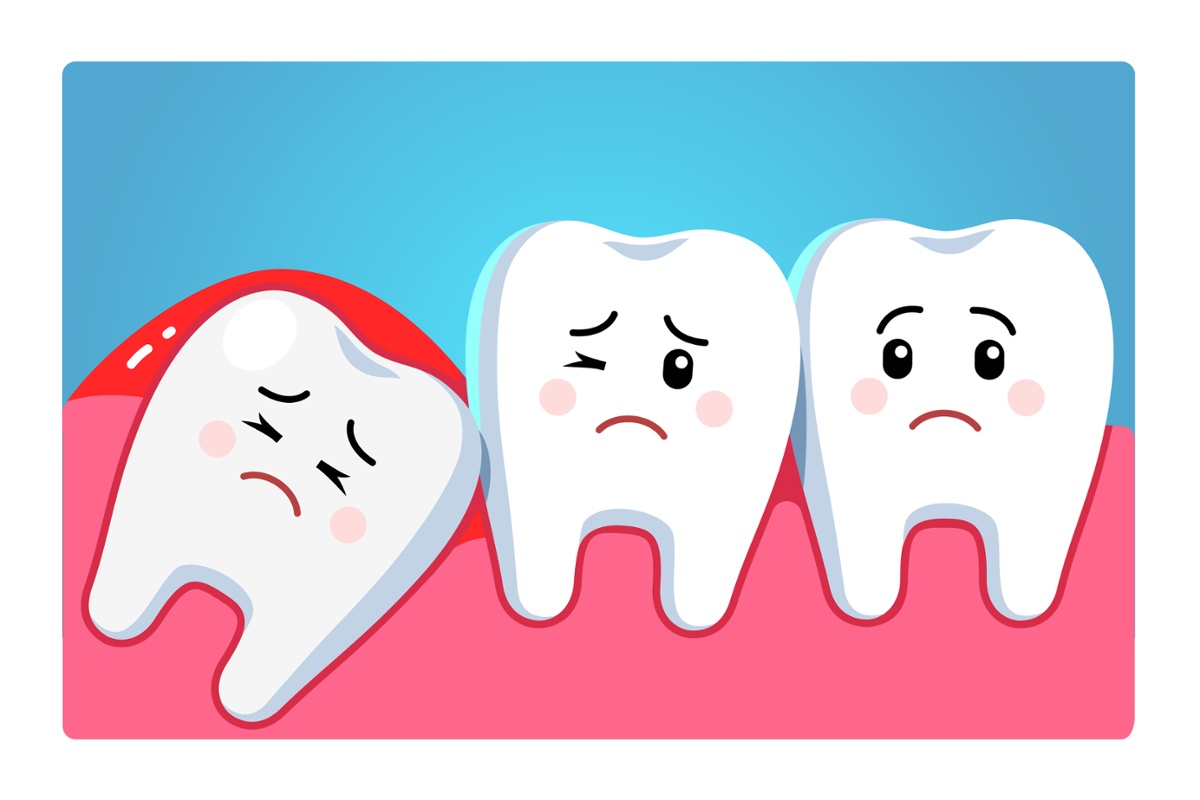After your first tooth erupts in infancy, your mouth experiences many milestones. Dentists are committed to preserving your natural teeth for a bright smile, but they often recommend removing an entire set of molars known as your wisdom teeth. The oral health professionals at Palmetto Dental Arts can help you understand wisdom teeth, the problems they can cause, and the best time to have them removed.
What Are Wisdom Teeth?
Your four wisdom teeth are the final molars to appear in your mouth. Located in the back of your mouth behind your second molars, third molars gain attention because of their high frequency of removal. Aristotle described third molars as “wisdom teeth” almost twenty-five hundred years ago, likely due to the expectation that a person should be wise by the time they erupt into the mouth. It may be debatable whether this is true, but learning more about these potentially problematic teeth is wise.
What Age Do Wisdom Teeth Come In?
Aristotle mentioned that wisdom teeth appear at the age of twenty. Today dentists typically expect their eruption between the mid to late teens and early twenties. However, wisdom teeth may show several significant variations from the expected, such as:
- Some wisdom teeth come in earlier than expected. Matt Adams set the world record of having wisdom teeth removed at the youngest age when two were removed when he was nine years old.
- Some wisdom teeth come in later than expected. Although older adults do not typically experience tooth eruption, wisdom teeth can make a surprise appearance at almost any age, including mid-life or later.
- Some wisdom teeth never appear. Some scientists believe that changes in the human diet have led to an evolution of fewer wisdom teeth developing. It is possible that you may lack one or more wisdom teeth.
- You can have more than four wisdom teeth. Hyperdontia is the condition of having more than the usual thirty-two teeth. These fourth and fifth molars can erupt or remain impacted beneath the gums.
Reasons to Keep Your Wisdom Teeth
Although approximately five million people have wisdom teeth extracted each year, there are reasons you might keep yours, including:
- They have completely grown into your mouth with no overlying gum tissue.
- The gum is firmly attached to the circumference of the tooth and bone.
- You can easily clean all surfaces of the teeth.
- They create no problems with your bite.
- You are at minimal risk for tooth decay and gum disease.
- They are completely impacted in the jawbone and pose no risk of damage to adjacent teeth or jawbone.
What Is an Impacted Wisdom Tooth?
You have probably heard wisdom teeth described as “impacted.” These get the most attention because they cause the most problems. They are called impacted because they are squeezed under the gum and bone behind the second molar, unable to take a normal and upright position in the jaw.
Reasons to Have Wisdom Teeth Removed
Most people need wisdom teeth removed because of their potential effect on their oral health, such as:
- Damage to the second molar. Due to the lack of adequate room for normal vertical eruption into the mouth, the wisdom tooth often is horizontally angled against the tooth beside it. The pressure of the growing wisdom tooth can cause destruction of this tooth structure.
- If the wisdom tooth cannot completely enter the mouth, it can cause persistent pain in the gums and jawbone.
- A condition known as pericoronitis can occur from a partially erupted third molar. This can happen when bacteria and food debris lodge between the gum and partially erupted tooth. The resulting inflammation can quickly turn into a serious infection that requires emergency treatment.
- Tooth decay. When a wisdom tooth gets trapped behind the adjacent molar, it creates an ideal environment for plaque accumulation. This can cause tooth decay in the third molar or adjacent teeth.
- Cyst formation. A cyst can form around an impacted wisdom tooth, causing pain, swelling, infection, and possibly loss of other teeth. This occurs most often when wisdom teeth removal is delayed too long.
Symptoms Caused by Wisdom Teeth
Some wisdom teeth don’t cause any noticeable symptoms. However, in many cases, you eventually experience one or more problems, such as:
- A bad taste in your mouth.
- Persistent bad breath.
- Jaw stiffness that makes opening and closing difficult.
- Swelling in your face, jaw, or gums.
- Swollen and tender lymph nodes in the neck.
- Bleeding gums in the area of the wisdom tooth.
The Best Time to Have Wisdom Teeth Removed
Dentists usually recommend wisdom teeth removal before they cause problems. This minimizes the chances of complications such as pain, infection, and damage to adjacent teeth. The best time for removal should be made in consultation with your dentist after a x ray and oral evaluation.
A general guideline is to have wisdom teeth removed as early as possible before the roots complete their development. The reasons for this include:
- Faster and better healing when the surgery is performed at an optimal age.
- A less complicated dental procedure when removing a smaller tooth.
- Surgical trauma to the gums and jawbone is minimized.
- The risk of a dry socket after surgery is reduced.
Possible Complications of Wisdom Teeth Removal
Fortunately, wisdom tooth removal is a safe and predictable dental procedure that rarely causes long-term problems. However, like any other surgery, complications can occur. Possible complications include:
- Dry socket. The greatest risk for a dry socket occurs about two to three days after the tooth extraction. Its symptoms include pain, bad breath, foul taste in the mouth, and a missing blood clot at the surgical site.
- Infected extraction site. Bacteria and food particles can cause fever, swelling, pain, and drainage from the extraction site.
- Nerve injury. You can experience tingling or numbness in your tongue or lip that usually resolves.
- Contact your dentist immediately if bleeding persists after the surgery.
Timing can be everything when it comes to wisdom tooth removal. The doctors at Palmetto Dental Arts can help guide you to the best possible decision regarding wisdom tooth extraction. Contact us today to schedule a consultation.




